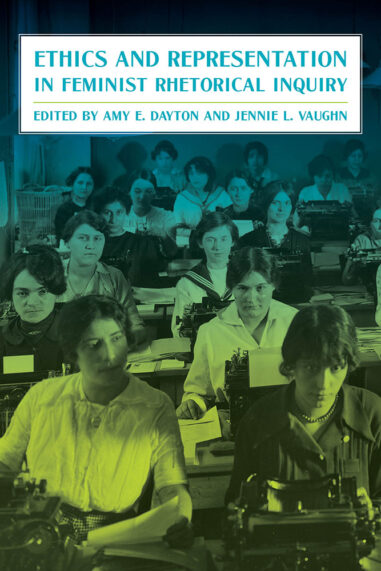

Hardcover $55.00
Also available in Kindle
Request Exam or Desk Copy. Request Review Copy
Ethics and Representation in Feminist Rhetorical Inquiry
This thought-provoking collection is a must-read for feminist archival researchers and teachers. Contributors disrupt linear storytelling practices: they call for histories that resist the lure of crafting succinct narratives, expand definitions of collaboration and corroboration, and upend archival methods in ways that complicate the search for easy answers. Game changing.

